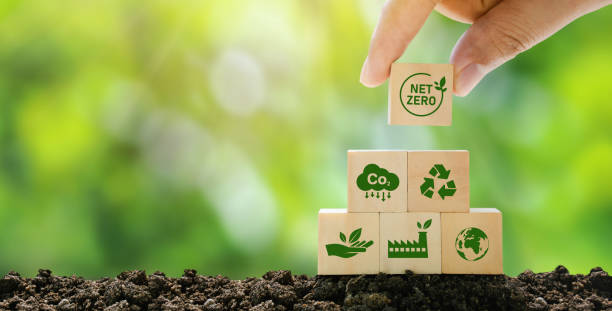Insights into Waste Management Jobs and Career Development in Italy
Waste management in Italy offers stable work opportunities focused on practical activities rather than prior experience. This field emphasizes reliability and encompasses various positions within the industry. An overview of different roles, salary levels, and essential skills can provide insight into potential career growth in sustainable waste management solutions.

The waste management and recycling industry in Italy plays a crucial role in maintaining environmental standards and supporting circular economy initiatives. As municipalities and private companies expand their operations to meet regulatory requirements and sustainability goals, the demand for skilled workers continues to grow. This sector encompasses a wide range of roles, from frontline collection staff to specialized technicians and administrative coordinators, each contributing to the efficient processing and disposal of waste materials.
Understanding Employment in Waste Management and Recycling
Employment in waste management and recycling spans multiple categories, including municipal services, private waste collection companies, recycling facilities, and environmental consultancy firms. Entry-level positions often involve operational tasks such as waste collection, sorting, and facility maintenance. These roles typically require physical stamina, attention to safety protocols, and a willingness to work in varied conditions. Mid-level positions may include supervisory roles, logistics coordination, and quality control, where workers oversee daily operations and ensure compliance with environmental regulations. Advanced positions involve strategic planning, environmental impact assessment, and policy development, requiring specialized education and experience in environmental science or public administration.
The sector also includes technical roles focused on equipment maintenance, waste treatment technology, and recycling process optimization. As Italy continues to implement stricter waste separation and recycling mandates, professionals with technical expertise in sorting technologies, composting systems, and waste-to-energy processes are increasingly valued. Additionally, administrative and customer service roles support public education campaigns and manage client relations for waste collection services.
Overview of Waste Management Systems
Italy’s waste management system is characterized by regional variation, with each municipality or consortium responsible for organizing collection, treatment, and disposal services. The system generally includes separate collection streams for organic waste, paper and cardboard, plastics and metals, glass, and residual waste. This multi-stream approach requires coordinated logistics and trained personnel to ensure proper sorting and processing.
Many Italian cities have adopted door-to-door collection models, where waste is collected directly from households according to scheduled days for different waste types. This model increases recycling rates but demands more staff and logistical planning. Larger urban areas may also utilize centralized collection points or underground waste containers equipped with access control systems. Recycling facilities and composting plants process separated materials, while residual waste is typically sent to waste-to-energy plants or landfills, depending on regional infrastructure.
The regulatory framework governing waste management in Italy is shaped by both national legislation and European Union directives, which set targets for recycling rates and landfill diversion. Compliance with these regulations requires ongoing training for workers and investment in modern processing technologies. Public and private sector collaboration is common, with municipalities often contracting private companies to handle collection and processing operations.
Skills and Salary Levels for Growth in the Waste Management Sector
Career development in waste management depends on acquiring relevant skills and gaining practical experience. Entry-level workers benefit from obtaining certifications in occupational safety, vehicle operation, and hazardous material handling. As workers progress, additional training in environmental regulations, waste treatment technologies, and project management can open doors to supervisory and technical positions. Language skills, particularly proficiency in Italian and English, can be advantageous for roles involving coordination with international partners or regulatory bodies.
While specific salary figures can vary widely based on role, experience, location, and employer type, it is important to note that compensation in this sector reflects the diverse nature of available positions. Entry-level operational roles typically offer starting compensation that aligns with regional labor standards, while specialized technical and managerial positions command higher remuneration. Geographic location also influences salary levels, with positions in northern Italy often offering different compensation structures compared to southern regions due to cost of living variations and industrial concentration.
Professional growth in this field may involve transitioning from operational roles to supervisory positions, specializing in technical areas such as waste treatment engineering, or moving into policy and compliance roles within municipal or regional authorities. Continuing education through vocational courses, university programs in environmental science, or professional certifications can enhance career prospects and earning potential over time.
Pathways to Entering the Waste Management Field
Individuals interested in pursuing careers in waste management can explore multiple entry points. Vocational training programs and technical institutes offer courses in environmental technology, waste treatment, and occupational safety. Some positions require specific licenses, such as commercial driving permits for collection vehicle operators or certifications for handling hazardous materials. Practical experience through internships or temporary contracts with municipal services or private waste companies can provide valuable hands-on knowledge and networking opportunities.
Job seekers should research local waste management authorities and private service providers in their area to understand hiring practices and qualification requirements. Many municipalities post openings through official channels or regional employment services. Building a foundation in environmental awareness, demonstrating reliability, and showing commitment to public service can strengthen applications for positions in this sector.
Conclusion
The waste management and recycling sector in Italy offers diverse career opportunities for individuals committed to environmental sustainability and public service. Understanding the structure of employment in this field, the operational systems that govern waste processing, and the skills required for career advancement can help prospective workers make informed decisions. As Italy continues to prioritize circular economy principles and regulatory compliance, the sector is likely to remain a stable source of employment with opportunities for professional development across operational, technical, and administrative roles.




